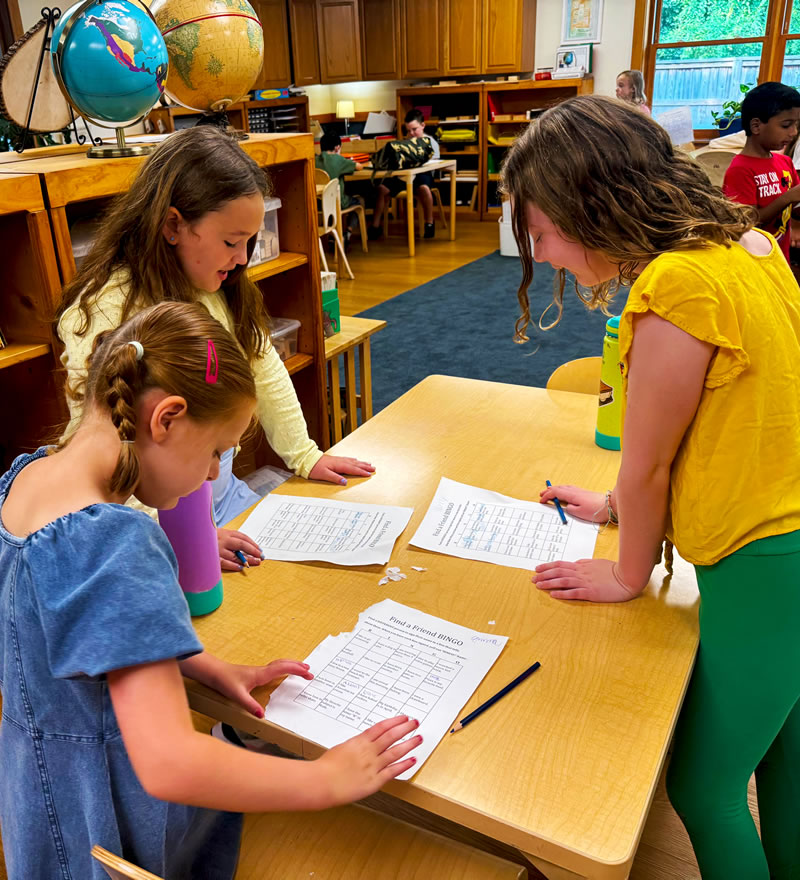
“The elementary child has reached a new level of development. Before, he was interested in things: working with his hands, learning their names. Now he is interested mainly in the how and why, the problem of cause and effect.”
- Dr. Maria Montessori
Elementary Classroom Curriculum
Our Lower and Upper Elementary Program provides for a smooth transition from the Early Childhood Program. Students expand their knowledge in a wide range of academic subjects; building on the skills and social abilities that they developed in the early childhood classroom. Critical thinking, problem solving and research skills are emphasized. Interests now soar into all areas of learning, and our classroom reflects this exciting new stage of development.
In keeping with the Montessori philosophy, subjects are offered in an integrated way and the children come to understand how everything they learn is interrelated. Children keep on working at their own pace. Emphasis is placed on developing strong work habits and responsibility for completing assignments to the best of their ability.
The curriculum covers a comprehensive range of interests and abilities in order to facilitate children of diverse learning styles. The environment is carefully structured for challenges and success at all levels. The teachers use a child's curiosity, imagination and development of social skills as natural motivators for learning.
The multi-age classroom continues to provide a sense of stability for the children. Younger children are stimulated by the work that their older classmates do, while older children have an opportunity to develop strong leadership skills within the group.
Learning at the elementary level is still based on the use of concrete materials. Children learn through experience and discovery. Gradually, as they work their way through the curriculum, they develop abstract concepts and begin to work more with pen and paper.
The elementary Montessori curriculum lays the foundation for further growth and understanding. The child moves from a carefully structured environment to one that they construct for themselves using the base of concrete understanding that they have developed between the ages of 6 to 12 years.
Elementary Daily Schedule
8:10 - 8:30
Arrival
8:30 - 8:45
Children work on the morning message as well as hear any important news of the upcoming school day.
8:45 - 11:45
Work period. Each Monday morning, work plans are handed out with a listing of all academic areas and the possible work choices within those areas. The morning work period provides children the time to work on their individual plans, which may include individual work, time in small groups, and individual or group presentations.
11:45 - 12:15
Clean-Up and Group Time. After individual work time, the class comes together to prepare for lunch by cleaning and setting the tables. This also is a time for group lessons, sharing of news and stories.
12:15 - 12:45
Lunch Time. Hand washing, good table manners, and proper conversation are part of the lunchtime experience and the Montessori "practical living" education.
12:45 - 1:15
After lunch, the children have outside time, in all kinds of weather. We believe the fresh air and sunshine is vital; they just need to be dressed for it!
1:15 - 2:30
Afternoon work period. This time includes specials such as art, music, P.E., Spanish, chess, yoga and writer's workshop. The children may also use this time to continue work begun in the morning work period.
2:30 - 2:45
Chapter book reading
2:45 - 3:00
Dismissal
